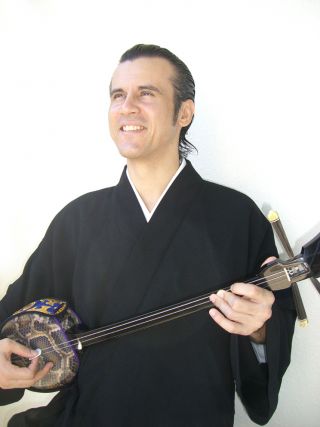How a Black Man From Missouri Transformed Himself Into the Indian LiberacePosted in Articles, Arts, Biography, Media Archive, Passing, United States on 2015-09-17 00:43Z by Steven |
How a Black Man From Missouri Transformed Himself Into the Indian Liberace
The New Republic
2015-09-12
Before Liberace, there was Korla Pandit. He was a pianist from New Delhi, India, and dazzled national audiences in the 1950s with his unique keyboard skills and exotic compositions on the Hammond B3 organ. He appeared on Los Angeles local television in 900 episodes of his show, “Korla Pandit’s Adventures in Music”, smartly dressed in a suit and tie or silk brocade Nehru jacket and cloaked in a turban adorned with a single shimmering jewel. The mysterious, spiritual Indian man with a hypnotic gaze and sly grin was transfixing.
Offstage, Korla—known as the “Godfather of Exotica“— was living the American dream: he had a house in the Hollywood hills, a beautiful blonde wife, two kids, and a social circle that included Errol Flynn and Bob Hope. He even had his own floral-decorated organ float in the Rose Bowl parade in 1953.
Like most everything in Hollywood, it was all smoke and mirrors. His charade wasn’t his stage name—it was his race. Korla Pandit, born John Roland Redd, was a light skinned black man from St. Louis, Missouri. It was a secret he kept until the day he died…
Read the entire article here.





